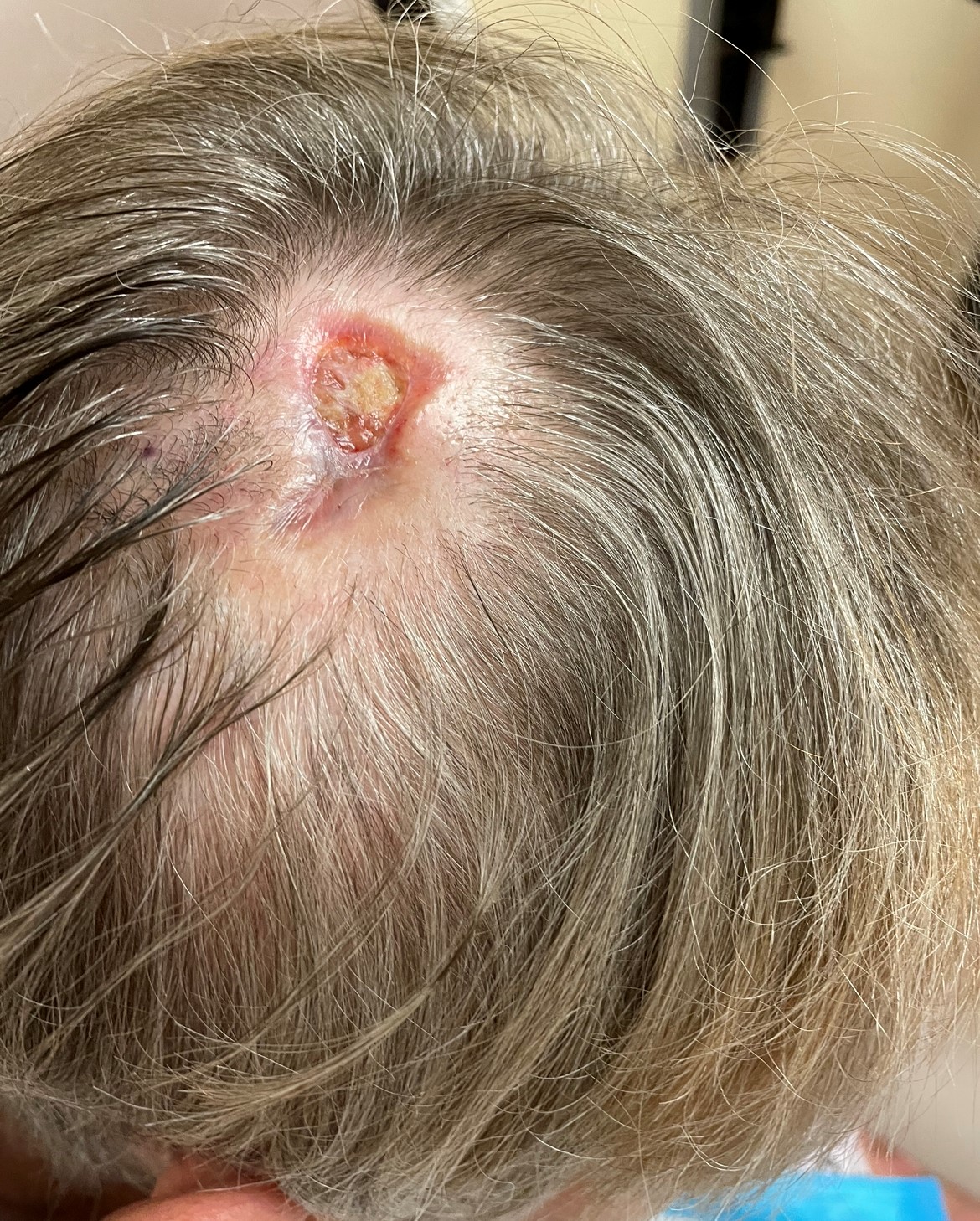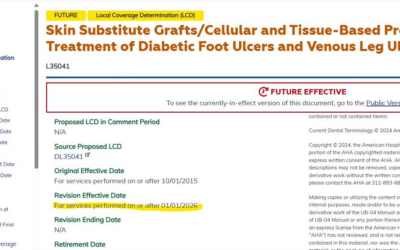This woman is 65 and developed a non-healing scalp wound after a fall 9 weeks earlier. The scalp is very well vascularized and in the absence of prior radiation, the list of reasons for a chronic wound on the scalp is pretty short. Skin cancer is common (especially on balding men), and inflammatory lesions occur there, especially in patients with autoimmune disease – which she had. Her medical history said she had rheumatoid arthritis (on Abatacept) and lupus (on chronic oral prednisone), as well as antiphospholipid antibody syndrome. On top of that she was a smoker.
The wound was a little tender, but not excruciating. I was prepared for it to be pyoderma gangrenosum, a condition which I seem to attract. But, it looked like a normal wound. I’ve started doing the Nestle Min-Nutritional Assessment (MNA) on all my patients and her score was only 7 on a scale from 0-14, indicating she is malnourished. Her BMI is 20 (normal), but she had extreme puffiness under her eyes which often is a sign of low serum protein. I asked her about her diet and she ate almost no protein.
I called her daughter, who is a nurse, and discussed the fact that her Mom might have a non-healing wound simply because her diet was inadequate. I recommended that she take a nutritional drink between meals, add protein powder to her food, and take L-arginine. The daughter obtained Juven since it’s available at our hospital. I also prescribed 50,000 units of Vitamin D3 one time a week.
She didn’t want to cut her hair around the lesion and no dressing would stay in place over her hair. We agreed she’d use some ointment to keep it moist, but otherwise, I didn’t do anything to it. And no, I didn’t debride it, because I’d ascertained she was malnourished. Malnutrition should be addressed before we debride patients.
In 4 weeks the wound was fully granulated and was nearly closed (without a debridement). In 8 weeks, it was gone. Yes, she was on 2.5 mg of prednisone a day as well as Methotrexate and Abatacept. It would have been easy to attribute the wound healing problem to her medications or even her smoking. Until I asked her what she had eaten today, and screened her with the MNA. Another example of food as medicine.





